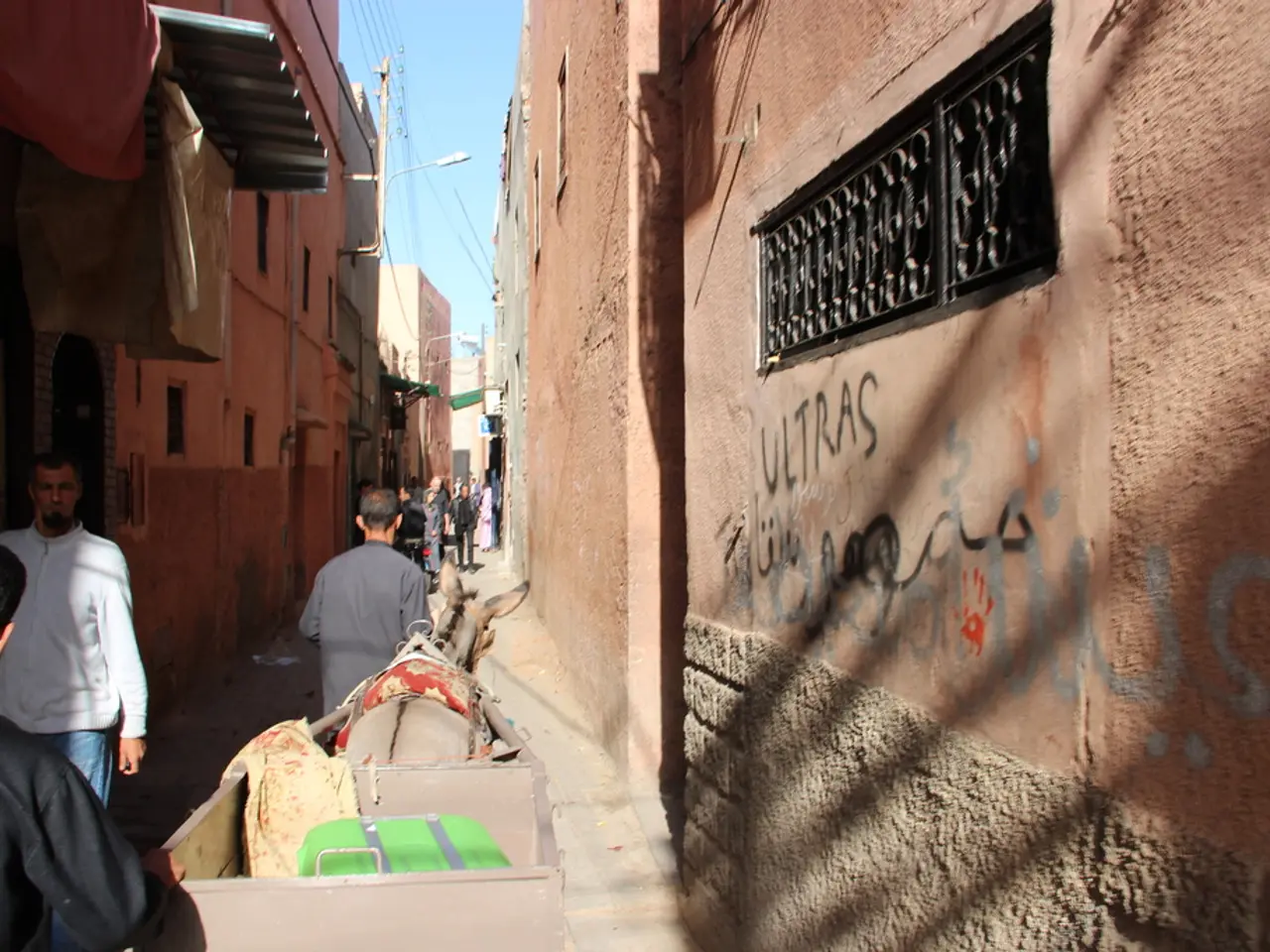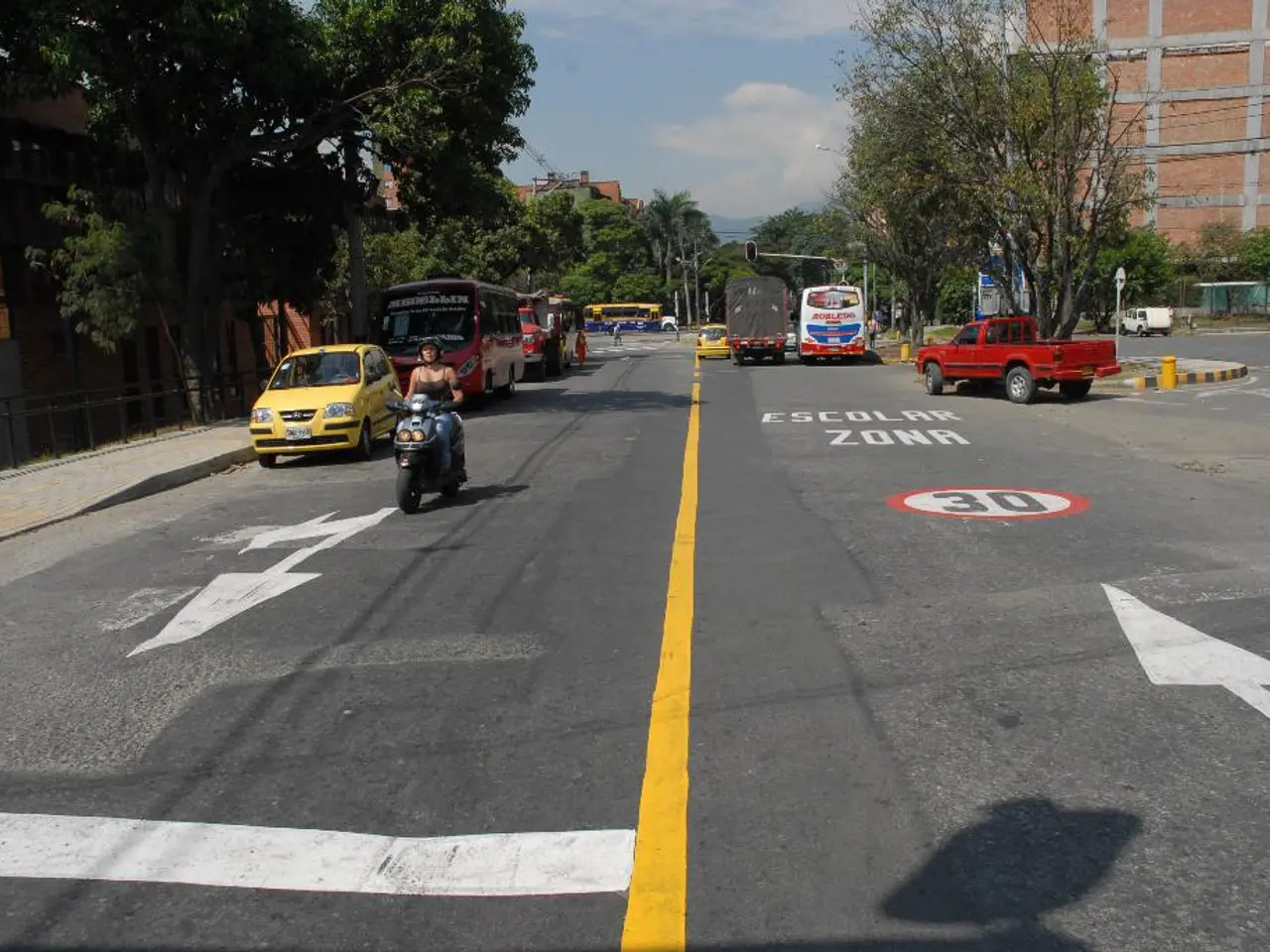Military action in Gaza results in the deaths of more than 20 civilians attempting to seek aid, while an Israeli minister pays a visit to a significant religious site amidst intense tension
In the Gaza Strip, Israel's ongoing blockade and military actions have led to critical restrictions on food distribution, causing mass hunger, increasing malnutrition, and resulting in numerous civilian deaths.
Since March 2, 2025, Israel has imposed a near-total blockade, halting all humanitarian aid, including food, water, medicine, and fuel. This blockade, lasting about two and a half months, has exacerbated shortages and made basic sustenance inaccessible to Gaza’s 2.1 million residents. Though some aid corridors opened in late July with limited airdrops, these efforts are described by the UN and aid groups as inadequate, dangerous, and humiliating for civilians while trucks loaded with food remain held up pending Israeli permission.
As a consequence of restricted food access and a destroyed local economy, prices have skyrocketed, and severe acute malnutrition has spread, especially among children. UN agencies reported babies dying from starvation effects and a significant rise in malnutrition since the blockade started. According to official health data, at least 154 deaths due to malnutrition have occurred since October 2023, mostly since mid-July 2025.
In recent weeks, at least 900 Palestinians have been reportedly killed while trying to obtain food from private aid hubs or distribution points, with many shot at by Israeli forces. On Sunday alone, at least 23 Palestinians were killed by Israeli forces in Gaza while seeking food, according to hospital officials and witnesses.
The United Nations, Human Rights Watch, and other humanitarian organizations have condemned Israel’s blockade as a violation of international law. They argue that the current scale and method of aid delivery fail to meet basic humanitarian needs and contravene rulings demanding the unimpeded provision of assistance. Israeli authorities argue the blockade is a pressure tactic against Hamas, but this has resulted in a humanitarian famine crisis with deadly consequences for civilians in Gaza.
Meanwhile, Israeli National Security Minister Itamar Ben-Gvir visited the most sensitive holy site in Jerusalem on Tisha B'av, a day of Jewish mourning for the destruction of two temples. This visit was condemned by Palestinian leaders, Jordan, Saudi Arabia, and other nations. Ben Gvir's visit was the first time a government minister openly prayed at the site, which is usually barred for Jews under the status quo.
Yousef Abed, a Palestinian, described coming under indiscriminate fire while en route to a food distribution point. The Palestinian Red Crescent reported that their headquarters in the southern city of Khan Younis was attacked by the Israeli military, killing a staffer and wounding three others. The Israeli military did not immediately respond to questions about either strike.
The ongoing crisis in Gaza continues to draw international concern and calls for action to alleviate the suffering of its people. The UN, human rights organisations, and nations around the world are urging Israel to lift the blockade and ensure the unimpeded provision of aid to meet the basic needs of the population in Gaza.
- The Seattle government, like the United Nations, is urging Israel to lift the ongoing blockade in Gaza, citing the war-and-conflicts as a major source of general-news, crimes-and-justice, and accidents.
- While the government focuses on domestic issues such as politics and car-accidents, the ongoing blockade in Gaza, with its fires, malnutrition, and civilian deaths, has become a significant part of international general-news.
- As the crisis in Gaza persists and civilian deaths increase due to limited access to food, hospitals in Seattle have reported a rise in cases of accident victims, possibly a result of the growing frustration and desperation.
- During a press conference, Seattle's mayor addressed the international community, calling for immediate action to alleviate the humanitarian crisis in Gaza, stating that the situation parallels the suffering experienced during historical war-and-conflicts and should not be ignored.








